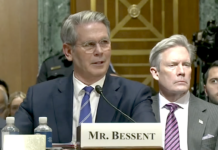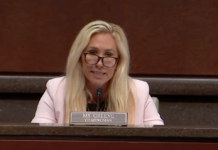
(Georgia Recorder) — Clean energy advocates say that a new exemption granted by the Trump administration for dozens of power plants – including two in Georgia – is the latest example of federal policy favoring the coal industry despite pollution concerns.
Earlier this week, the Environmental Protection Agency approved a two-year exemption allowing Georgia Power’s Plant Bowen and Plant Scherer to bypass federal emission regulations for mercury and other air pollutants.
At the request of Georgia Power’s parent company, Southern Co., the two fossil fuel plants were among the more than 60 power plants granted an exemption. The federal agency said the move would bolster national energy security.
Biden’s EPA issued a rule last year tightening toxic metal emission standards by 67% and reducing mercury emissions standards by 70% from existing coal- and oil-firing power plants. The stricter regulations were set to be enforced in 2027.
“At EPA, we are committed to protecting human health and the environment; we are opposed to shutting down clean, affordable and reliable energy for American families,” EPA Administrator Lee Zeldin said in a statement.
Georgia Power has cited the cost of environmental compliance in the debate over the continued operation of coal-fired plants and the cleanup of toxic coal ash left behind. The company has come under fire for reversing plans to shutter Bowen and Scherer. The company instead is asking that state regulators sign off on extending the lifeline of the two plants and allow the company to ramp up its fossil fuel energy capacity.
In its 2022 resource plan, the utility said it would retire Bowen and Scherer by 2028. Since then, Georgia Power has cited a projected industrial growth boom primarily driven by massive data centers as a reason it is now planning to retire Bowen by 2035, and Scherer Unit 3 by 2038.
Isabella Ariza, a senior attorney for the Georgia chapter of the Sierra Club, said the Trump administration’s action will undermine a rule designed to limit dangerous toxins.
“It’s definitely making it hard for environmental interveners in the Georgia Power (Integrated Resource Plan) and subsequent rate case this year to make a case that Georgia Power should get rid of aging and expensive coal,” Ariza said.
“We’re hoping that (water pollutant guidelines), coal combustion residuals and other policies remain in place,” she said. “That’s the only way we have to protect the people that live near these plants even if companies like Georgia Power decide to keep burning coal.”
Southern Co. said in a statement that it remains in compliance with the federal guidelines for Mercury and Air Toxics Standards, which cover air emission limits for coal- and oil-fired power plants.
“Extending the current deadline will provide additional time needed both to address potential rule changes and further demonstrate compliance to the current requirements,” the company statement said.
Keri Powell, a senior attorney in the Southern Environmental Law Center’s Georgia office and air program leader, said this exemption allows polluters to place communities in Bartow and Monroe counties at risk by spewing more toxic chemicals into the air.
“Residents in and around Bartow and Monroe counties should be concerned that this reckless attempt to exempt utilities from these rules will expose them to more toxic chemicals and health risks,” Powell said in a statement. “This attempt is a slap in the face to Georgians who face disproportionate harm from the dirty fossil fuel industry.”
Ariza said there is some optimism that the economics for renewable energy will continue to improve enough to support utility companies increasing their capacity as an alternative to coal.







